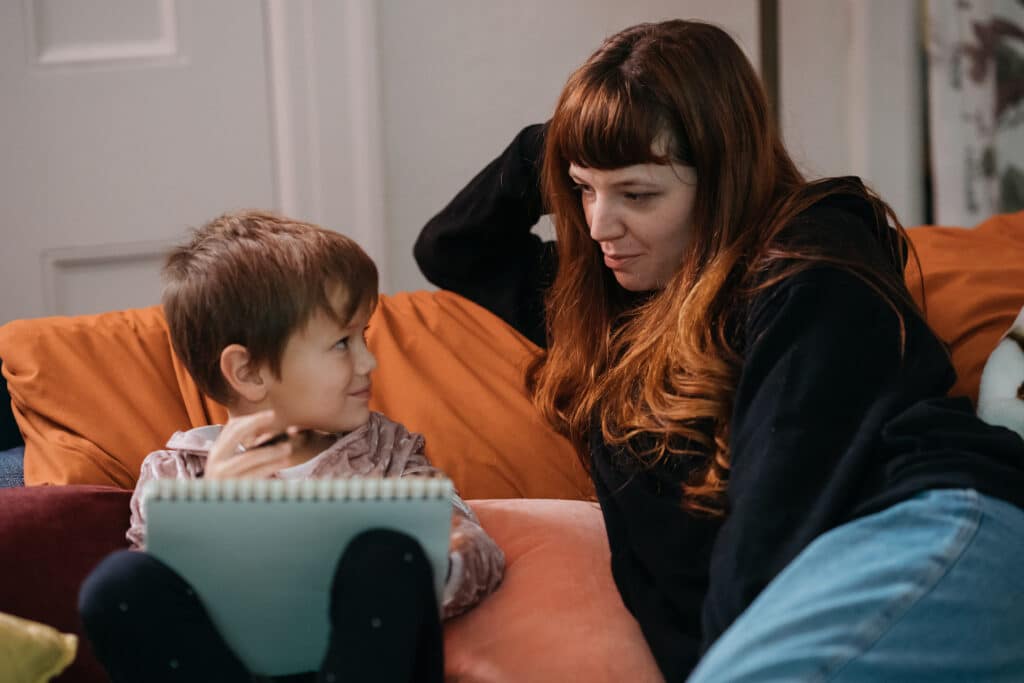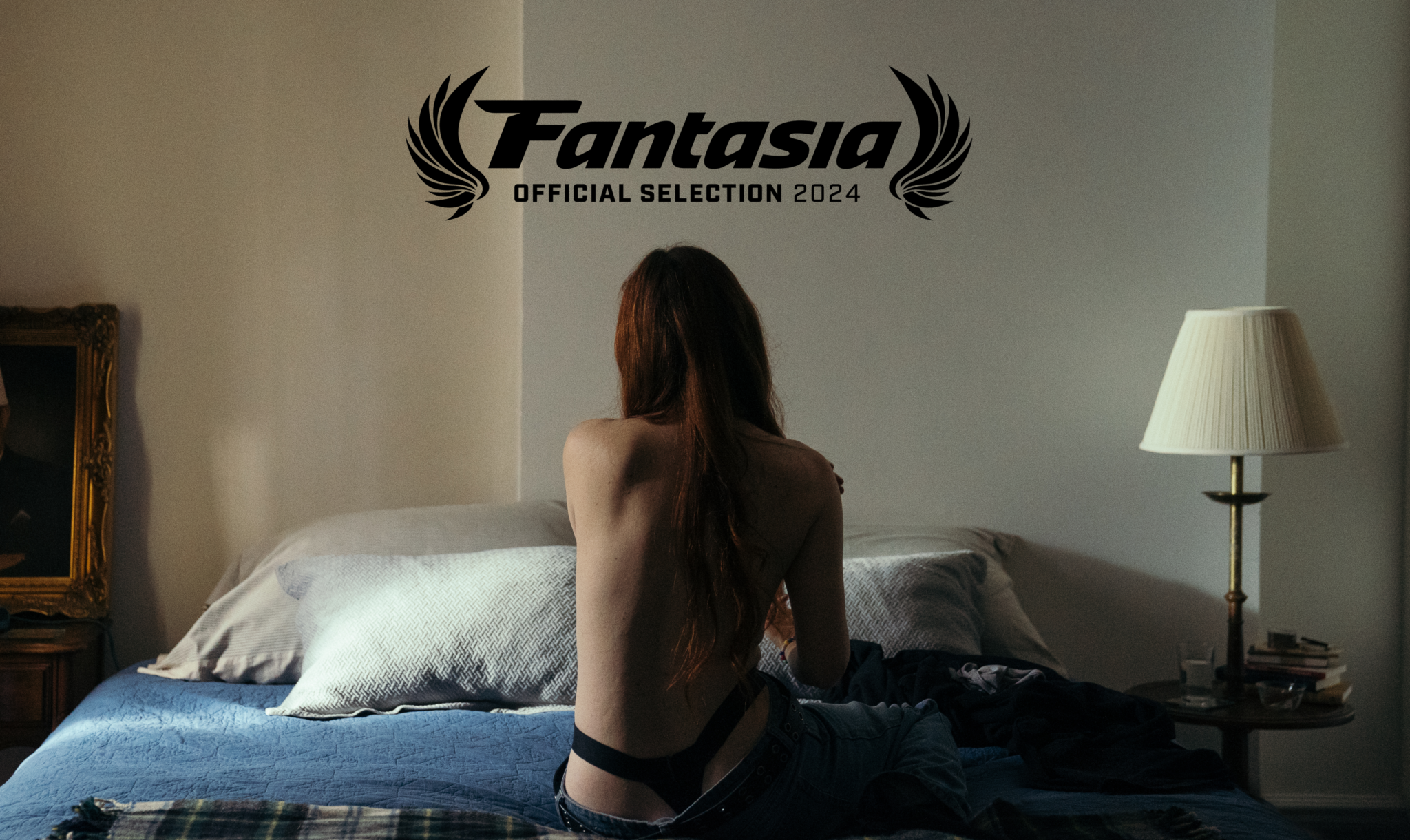
A fraught, uneasy atmosphere seems to pervade Dirty Bad Wrong (2023) from its very opening moments. There’s something about the ways in which young mother Sid (Michaela Kurimsky) sits, distracted, as her young son Jesse (Jack Greig) fidgets and investigates their surroundings in ways which quickly suggest they aren’t at home. And, as she is called out of the room by a nameless man (Cody Ray Thompson), it is quickly revealed that she is a sex worker. She puts her headphones on her young son, instructing him not to remove them; it’s all she can do, given she’s had to bring him along, to protect him from the realities of her own life during these moments. Our John Doe shows some brief consternation that Sid has brought her son along with her, but not enough to stop him doing what he wants to do. In fact, given there’s more money in the envelope than Sid expected, it seems he wants her to do more than she wishes: she rebuffs him.
As it stands, the childcare issues which brought Jesse into this house in the first place return to the fore when, as small children do, he simply can’t sit still, and starts wandering around, injuring himself in the kitchen. A distraught Sid calls the whole thing off and leaves with her son. But, with his birthday coming up and a new, sudden financial issue, she needs money. Reluctantly, she has to return to John Doe and take the work she was so adamant to avoid.
Whilst the metaphor of consumption – particularly based around the relentless selfishness of the male libido (oh, come on, yes it is) – is pretty clearly addressed here, even going so far as to touch upon body horror, Dirty Bad Wrong ensures that this is always intermeshed with a plausible normality, with a young woman who has normal concerns, needs and wants. This is carefully done in the film’s brief runtime, showing us a loving relationship between mother and son. Jesse, in only a few lines, is presented as a patient, kind but often sad little boy; his mother, who only faces the camera in full when she’s with Jesse (otherwise glimpsed from the side, or the back) is fiercely reserved when she can be, but it’s very much her and him against the world. It’s also hinted that other women are in a similar situation, juggling the deviance of others with the normality they ordinarily embody. In short, the film invites us to consider what sort of a world this is, and whom it harms.
In some respects, Dirty Bad Wrong is reminiscent of Simon Rumley’s short film, P is for Pressure, taken from the anthology film The ABCs of Death in 2010, even though Sid doesn’t harm others in her own unsavoury assignment. But the love for one’s children, and hoping that through deviant means they can have a normal life, is definitely there in both films. Dirty Bad Wrong is a quiet, clever film which only ever needs to hint at Sid’s defiance and will; in less than fifteen minutes it achieves a great deal, with well-delineated characters and their motivations displayed against a backdrop of a mean-spirited world, but one which – despite the oppressive feel at the start of this film – can clearly be overcome with love.
Dirty Bad Wrong featured at this year’s Fantasia International Film Festival.
